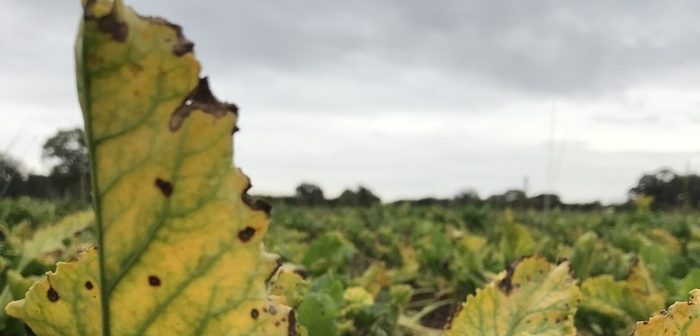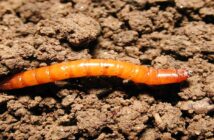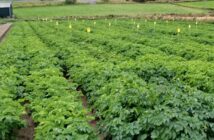Following Defra’s decision to deny the application for emergency authorisation to use the neonicotinoid-based seed treatment Cruiser SB, Orion Future Technologies suggest growers have an alternative option in silicon.
It says its biological alternative Sirius has shown promising results in trials. “Biostimulant Sirius with 21% bio available silicon, was trialled in 2022 and has since been used by growers in the UK to help strengthen sugar beet plants against damaging virus transmission,” explains Orion agronomist Mike Stoker.
Unlike Cruiser SB, which provides seed protection against the potato peach aphid and the yellows virus it transmits, Sirius strengthens the cell walls of the plant and increases leaf hair density to make the plant less appealing to aphids.
“This approach, alongside common insecticides including Tepppeki and Insyst, has shown a significant reduction in the virus transmission. By accumulating more silicon, the plant becomes less attractive to pests and combining this with aphicides offers an attractive alternative to using Cruiser SB,” he adds.
In Defra’s published decision it stated that crop losses in 2022-2024 ranging from 0.3%-1.7% when Cruiser SB was available were not dissimilar to 2019 and 2021.
“Relying solely on seed treatments is not a sustainable way to farm sugar beet in the UK, nor has it necessarily provided the level of protection expected. There are alternatives, and concentrating on strengthening plants using naturally available solutions like silicon are sustainable and efficacious,” notes Mike.
Silicon is applied as a foliar spray to sugar beet at growth stage 6-8 true leaves and, once accumulated, acts to reduce the feeding time of predating pests such as aphids. This reduction in feeding time has been identified as an important factor in the reduction in virus transmission and has also led to healthier plants with an improved yield.
“The data we have gathered from multiple sources, field application, replicated plot trials and lab studies has demonstrated not only why a silicon treated crop is more resilient, but also how increasing silicon levels in the plant can have a positive impact on quality and yield,” he concludes.




